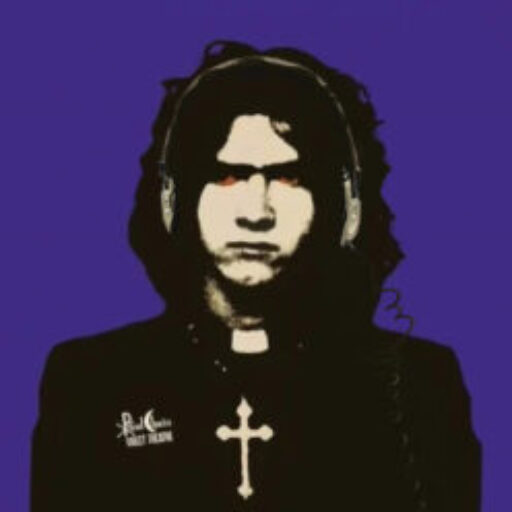That Which Returned to Me | A Short Story by W.H. Sepulcher
Inspired by Mizmor and “Woe Regains My Substance”
I left the church burning behind me.
Not in hatred, not even anger. The matches were lit with a kind of numb reverence, the way you might bury a long-suffering relative. I set the flame at the base of the pulpit, watched the crimson tongue climb the old wood, wrap itself around the scriptures. The light glowed gold through the stained glass one final time before the panes burst, flinging fragments of saints into the dirt. I did not look back again.
You cannot burn what you never truly held. But you can watch it die.
I walked until the road became idea. It shed its gravel, its borders, its purpose. Just an endless stretch of not-yet where memory tried and failed to pave meaning. I knew I had passed familiar landmarks — the field where we once gathered thistles for the altar, the brook we called the throat of God — but they no longer held form. The world was becoming as shapeless as my thoughts.
Each night, I made camp in the echo of some long-forgotten ruin. A cloister with no roof. A chapel with a hollow steeple. A pew grown over in moss, as though penance itself had taken root and surrendered to stillness. In these places I dreamed — not visions, but replays. The same moments, distorted:
My mother whispering, “He is always with you.”
My younger self replying, “Even when I close my eyes?”
And then the darkness would bloom.
It began with the weight in my chest.
I’d carried sorrow before — grief has its own grammar. But this was different. Not sharp. Not sudden. Just… reclaiming. Like something long ago exiled had finally remembered the way home.
Woe, the wordless thing, crept in through the pores. It didn’t knock. It didn’t argue. It simply returned. And once it entered, it began to speak.
Not in sound, but sensation.
Not in language, but bone.
It told me: You were never broken. You were unfinished.
It showed me: the hollowness was not an absence, but an invitation. That the collapse I called crisis was the foundation of truth.
It was not cruel. Cruelty implies pleasure. The voice — or whatever I had become — felt nothing. Only gravity. Only the undeniable.
Days passed without count. My skin dried and cracked in the sun. I stopped needing food. The body, it seemed, had adapted to emptiness. I began to see reflections in things that could not reflect: the surface of charred stone, the bottom of dry wells. My face, but not my face. Pale, fissured like a forgotten idol. Always looking back with no question, only knowledge.
Then came the final ruin — a church grown into a cliffside, its apse open to the sea like a mouth mid-gasp. There was no roof, no altar, only a great mirror standing at the chancel, cracked in seven lines like veins in a dead eye.
I approached.
I looked.
And I understood.
The thing I had fled — the God, the guilt, the grief — was not behind me. It was within me. And not as some passenger, some oppressor, but as the only part of me that ever remained unchanged.
It had waited. Not to judge. To return.
Woe, my shadow and substance, my parent and offspring. It had been with me in prayer, in silence, in fire. It was what was left when everything else burned.
I did not kneel. I did not cry.
I simply said: “I see you.”
And in the mirror, it nodded.
Then it moved.



